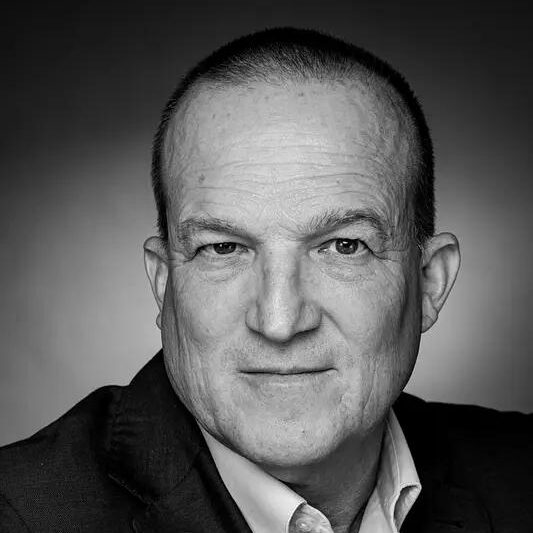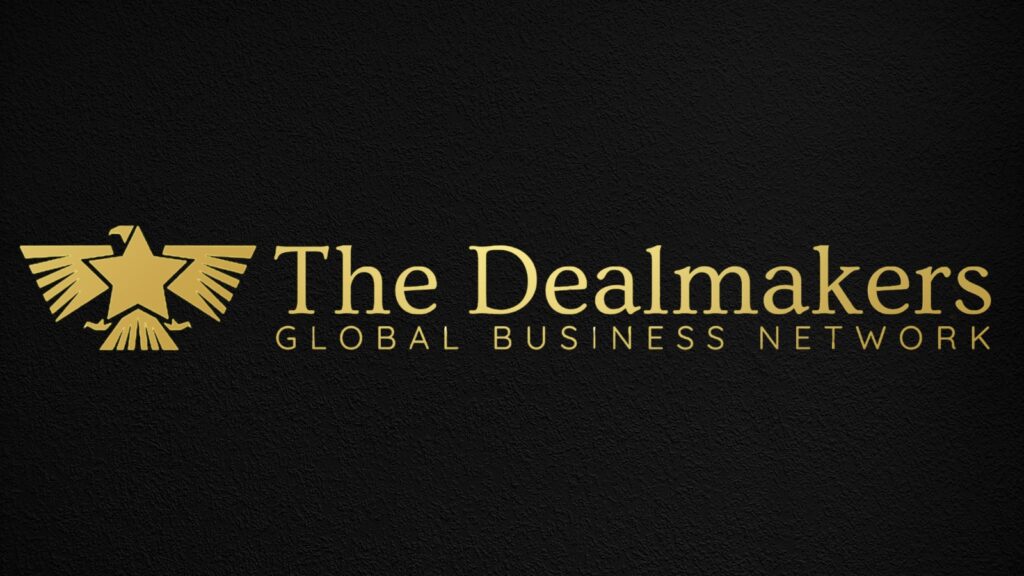Dubai, UAE – December 19, 2024 – As we stand at the threshold of a new era, the global economy is poised for seismic shifts driven by key industries that are set to transform over the next decade. Advances in technology, changes in consumer behavior, and emerging global challenges will shape the way businesses operate and the way we live. For executives, investors, and decision-makers looking to stay ahead, understanding these transformative industries is crucial for success in the coming years.
This press release highlights the industries that are expected to lead the way, with a focus on innovation, sustainability, and adaptation to new trends. These sectors are not only reimagining business operations but are also opening doors to new opportunities, demanding that we adjust our strategies to remain competitive and relevant.
Artificial Intelligence and Automation: Redefining Industries
The role of artificial intelligence (AI) and automation in business is set to expand dramatically in the next decade. These technologies are transforming a wide range of sectors, from manufacturing and logistics to healthcare and finance. AI is no longer just about data analytics but is now being used to enhance decision-making, streamline workflows, and predict trends in real time. Automation, which has long been the backbone of industries like manufacturing, is now making inroads into more complex sectors, including customer service, legal services, and even creative industries.
The key benefit of AI and automation lies in their ability to enhance efficiency and productivity. Tasks that once took hours, if not days, can now be completed in seconds, and companies are leveraging these technologies to reduce human error, optimize resource allocation, and improve operational scalability. For executives in industries such as logistics or finance, AI-driven solutions are revolutionizing everything from supply chain management to fraud detection, making it essential to embrace these advancements to stay competitive.
Additionally, the integration of AI with robotics and the Internet of Things (IoT) is creating smart ecosystems that promise to further disrupt industries like healthcare and retail. As AI continues to evolve, it will likely become an integral part of nearly every industry, with businesses that adopt AI-driven solutions being better equipped to adapt to rapidly changing market conditions.
Renewable Energy: Powering the Future
One of the most important shifts in the coming decade is the transition to renewable energy. As concerns about climate change and environmental sustainability intensify, industries and governments are increasing their focus on clean, renewable sources of energy such as solar, wind, and hydropower. Alongside the drive for sustainability, renewable energy technologies are becoming more efficient and cost-effective, opening up significant growth opportunities for companies within this sector.
With advancements in battery storage and grid technology, renewable energy is becoming increasingly viable, even in regions where traditional energy sources have long been dominant. The energy transition is no longer a distant future but is happening now. By 2030, renewable energy is expected to make up a larger share of the global energy mix than ever before, and the companies that position themselves to benefit from this shift will enjoy both financial and environmental rewards.
For industries that rely heavily on energy consumption, transitioning to renewables offers not only potential cost savings but also the opportunity to align with consumer expectations of corporate responsibility. Major industries like transportation, manufacturing, and agriculture are already investing heavily in renewable energy solutions and adopting greener technologies, setting the stage for a sustainable future that will influence every corner of the business world.
Healthcare Innovation: A New Era of Patient Care
Healthcare has always been an industry of significant importance, but the next decade will bring even greater transformations driven by digital health innovations. With the rise of telemedicine, wearable health devices, and AI-driven diagnostics, healthcare is becoming more personalized, accessible, and efficient. The COVID-19 pandemic accelerated the adoption of remote healthcare services, but this trend is likely to continue as technology advances.
One of the key areas of focus will be precision medicine, where treatments and care plans are tailored to the individual’s genetic makeup, lifestyle, and environment. This move towards personalized healthcare will enable providers to offer more effective treatments and outcomes. AI and machine learning will also play a critical role in this shift by enabling better prediction, diagnosis, and treatment plans. For healthcare organizations, adopting these innovations is crucial for remaining competitive in an increasingly digital and data-driven landscape.
In addition to improving patient care, these technological advancements will help address some of the systemic challenges faced by healthcare systems around the world, including accessibility, affordability, and efficiency. The digital transformation of healthcare is expected to reduce costs, enhance patient outcomes, and improve the overall quality of care.
E-Commerce and Digital Transformation: Shaping Consumer Behavior
E-commerce has been growing steadily for years, but the next decade will see it truly revolutionize the way consumers engage with brands and make purchases. With the rise of mobile commerce, voice-assisted shopping, and augmented reality (AR) experiences, the way consumers shop is evolving rapidly. Companies that embrace these new technologies will have a distinct advantage as consumer expectations shift towards more seamless and personalized online experiences.
For retailers, this means leveraging data analytics to better understand customer behavior and provide targeted, personalized shopping experiences. Additionally, the integration of AI in customer service — such as chatbots and virtual assistants — will further enhance the customer journey, making it more efficient and satisfying. The advent of blockchain technology will also have a significant impact, improving transparency, security, and trust in digital transactions.
As digital transformation accelerates across industries, it is critical for businesses to not only embrace e-commerce but also adopt new business models that prioritize consumer engagement and convenience. Companies that invest in digital tools, platforms, and strategies will be well-positioned to capitalize on the ever-expanding online market.
Financial Technology (FinTech): Reshaping the Financial Landscape
The FinTech industry continues to expand rapidly, bringing about transformative changes in the way we handle money, payments, and financial transactions. Blockchain, digital currencies, robo-advisors, and peer-to-peer lending platforms are just a few of the innovations that are reshaping financial services. With a focus on efficiency, transparency, and customer empowerment, FinTech is disrupting traditional banking and financial systems.
In the next decade, we can expect an even greater integration of blockchain technology and cryptocurrencies, offering new ways to secure financial transactions and create decentralized finance (DeFi) ecosystems. With the growing demand for mobile payments and digital wallets, businesses will need to adapt quickly to meet consumers’ shifting expectations for convenient, seamless financial experiences.
The DealMakers: Navigating the Transformative Landscape
As industries evolve and new opportunities arise, staying informed and connected to key decision-makers becomes paramount. Platforms like The DealMakers play a critical role in facilitating connections and providing access to insights from experts across various sectors. By leveraging the resources available through The DealMakers, businesses and investors can ensure they are aligned with the trends that will shape the next decade. Through collaborations and strategic partnerships, organizations can position themselves to thrive in an increasingly dynamic global market.
Conclusion
The next decade promises to be a time of unprecedented transformation across multiple industries. From artificial intelligence and renewable energy to healthcare innovation, e-commerce, and FinTech, the changes that are already underway will fundamentally reshape the way businesses operate and how consumers engage with products and services. By staying informed and adaptable, companies and investors can seize the opportunities that these emerging industries present and build a foundation for long-term success. The future is bright for those who are ready to embrace change, innovate, and transform with the times.
About The Deal Makers
Formerly known as The Abrahamic Business Circle, The Deal Makers is a premier global platform connecting entrepreneurs and investors to foster growth, innovation, and collaboration. With tailored networking events, pitch forums, and workshops, The Deal Makers empowers leaders to forge meaningful partnerships and secure funding for impactful projects. Its mission: to create enduring business opportunities that shape the future of the global market.
Media Contact:
The Deal Makers
Email: connect@thedealmakers.org
Website: www.thedealmakers.org
Legal notice:
PressLink distributes this news content “as is” without express or implied warranties of any kind. PressLink expressly disclaims any liability for the accuracy, content, images, videos, licenses, completeness, legality or reliability of the information presented in this article. Any complaints, copyright issues or concerns regarding this article should be directed to the author.
Note:
This content was not written or endorsed by PressLink and does not reflect the views of PressLink, its advertisers, or affiliates. For inquiries or corrections regarding press releases, please contact PressLink directly.
Affiliated websites include Deutschland Headlines, Austria Report, Swiss Coverage, United States Headline, UK Article, Europress Watch, Iberian Press Hub, Latam Story, Israel News Express, Spain Today News, NY News Report, My Africa Today, Daily Asian Report, Discover India Hub, Washington Report Daily, Middle East News Daily, Auto Update Hub, Business News Ventures, Daily Financial Report, The Capital Reports, The Investors Channel, Industrial Pulse News, The Manager Magazine, The Innovation News, Robotics Edition, Green Impact News, Education Press News, Healthcare Pulse News, Real Estate News Report, Tourism Trends Today, etc.











